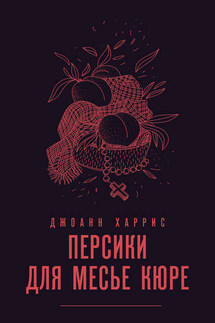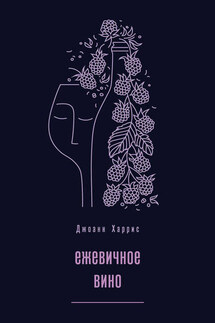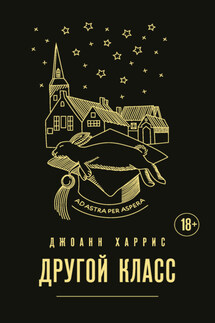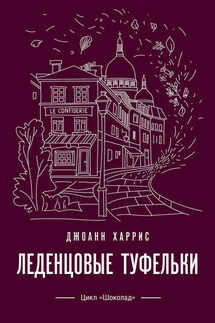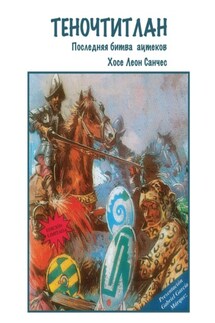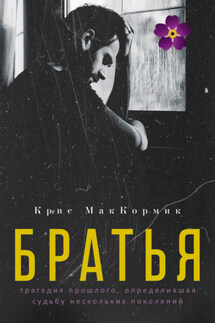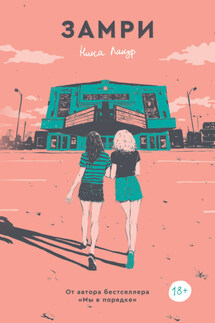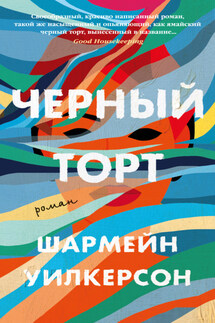Five Quarters of the Orange / Пять четвертинок апельсина - страница 6
For them I learned to be a mother again, cooking pancakes and thick herb-and-apple sausages. I made jam for them from figs and green tomatoes and sour cherries and quinces. I let them play with the little brown mischievous goats and feed them crusts and pieces of carrot. We fed the hens, stroked the soft noses of the ponies, collected sorrel for the rabbits. I showed them the river and how to reach the sunny sandbanks. I warned them-with such a catch in my heart-of the dangers, the snakes, roots, eddies, quicksand, made them promise never, never to swim there. I showed them the woods beyond, the best places to find mushrooms, the ways of telling the fake chanterelle from the true, the sour bilberries growing wild under the thicket. This was the childhood my daughters should have had. Instead there was the wild coast of Côte d’Armor, where Hervé and I lived for a time, the windy beaches, pine forests, slate-roofed stone houses. I tried to be a good mother to them, really I did, but I felt there was always something missing. I realize now it was this house, this farm, these fields, the sleepy, reeking Loire of Les Laveuses. This is what I wanted for them, and I began again with my grandchildren. Indulging them, I indulged myself.
I like to think my mother might have done the same, given the chance. I imagine her as a placid grandmother, accepting my rebukes-Really, Mother, you’re going to spoil those children rotten-with an impenitent twinkle, and it does not seem as impossible as once it did. Or maybe I’m reinventing her. Maybe she really was as I remember her-a stony woman who never smiled, who watched me with that look of flat, incomprehensible hunger.
She never saw her granddaughters, never even knew they existed. I told Hervé my parents were dead, and he never questioned the lie. His father was a fisherman, his mother a little round partridge of a woman who sold the fish on the markets. I pulled them around me like a borrowed blanket, knowing that one day I would have to go back into the cold without them. A good man, Hervé, a calm man with no sharp edges in him upon which I could be cut. I loved him-not in the searing, desperate way I loved Tomas; but enough.
When he died in 1976-struck by lightning on an eel-fishing trip with his father-my grief was tinged with a feeling of inevitability, almost of relief. It had been good for a time, yes. But business-life-has to move on. I went back to Les Laveuses eighteen months later with the feeling of waking up after a long, dark sleep.
It may seem strange to you that I waited for so long before reading my mother’s album. It was my only legacy-except for the Périgord truffle-and in five years I had barely glanced at it. Of course, I knew so many of the recipes by heart that I hardly needed to read them, but even so… I had not even been present for the reading of the will. I can’t tell you on what day she died, though I can tell you where; in an old folks’ home in Vitré called La Gautraye, of stomach cancer. She’s buried there too, in the local cemetery, though I only went there once. Her grave is close to the far wall, by the refuse bins. Mirabelle DARTIGEN, it says, then some dates. I notice with little surprise that my mother lied to us about her age.
I don’t really know what prompted my first studies of her album. It was my first summer in Les Laveuses. There had been a drought, and the Loire was maybe a couple of meters lower than usual, showing ugly shrunken verges like the stump of a sick tooth. Roots straggled down into the water, bleached yellow-white by the sun, and children played among the roots on the sandbanks, paddling barefoot in the filthy brown puddles, poking with sticks at the rubbish floating from upstream. Until then I had avoided looking at the album, feeling absurdly at fault, a voyeuse, as if my mother might come in at any time and see me reading her strange secrets… Truth is, I didn’t want to know her secrets. Like walking into a room at night and hearing your parents making love: an inner voice told me it was wrong, and it took more than ten years for me to understand that the voice I heard was not my mother’s, but my own.
